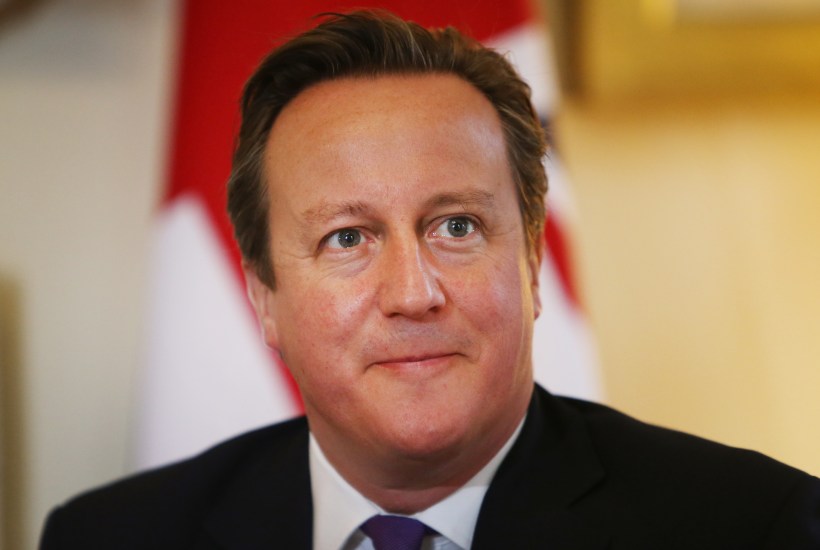I’ve been thinking about the Conservative party’s proposal for a Bill of Rights and am finding it difficult to make up my mind. On the one hand, I like the idea of making the Supreme Court of the United Kingdom the ultimate guarantor of our human rights rather than the European Court. British judges are surely more reliable guardians of liberty than the jurists in Strasbourg. But on the other, I’m nervous about the rights enshrined in the European Convention on Human Rights becoming less sacrosanct, particularly Article 10, which deals with freedom of expression. I’ll explain what I mean by that a little bit further down.
Let’s start with a straw man. The fact that David Cameron has said he would like to repeal Labour’s Human Rights Act doesn’t mean he’s seeking to disapply the European convention. On the contrary, his proposal is to embody the convention in a British bill of rights. Nor is he arguing that the European Court should be completely disregarded. Rather, if the judges in Strasbourg rule that a particular British law is incompatible with the convention, that would be treated as advisory rather than binding under the new proposal. Whether to amend or repeal the law in question would be a matter for Parliament.
So far, so good. But if the convention will still apply, what guarantee is there that the British Supreme Court, whose judgements would be binding, will interpret it any differently to the European Court? Like many conservatives, I think it’s absurd when a foreign convicted murderer, on his release from prison, cannot be deported by the Home Office because Strasbourg has ruled that sending him back to his country of origin would violate his right to a family life. But isn’t it naive to think that British judges, many of whom are quite left-wing, would always side with the Home Office? It’s not as if they do at present.
The team in the No. 10 Policy Unit have come up with a solution to this problem — and this is where they stray into dangerous territory. According to the document posted on the Conservative party website, some of the terms used in the convention ‘would benefit from a more precise definition’ so as to prevent them being given ‘an excessively broad meaning’. So the bill of rights wouldn’t simply reproduce the convention in every particular. Rather, it would seek to define the rights enshrined in the convention in a way that made it harder for left-wing jurists to impose their political views through the court. In short, the bill of rights would put a conservative spin on the convention.
My worry about this is that any such guidance would be rejected by the next Labour government — and Labour are bound to get back in sooner or later. It’s easy to imagine a scenario in which a socialist government decides to amend the Bill of Rights, replacing the right-wing spin with a more leftist interpretation. Take Protocol 1, Article 2, for instance, which talks about the right of parents to educate children in accordance with their own religious beliefs. At present, that clause gives some protection to faith schools and a Labour government that sought to abolish them could be challenged in Strasbourg. But once the precedent has been set that it’s legitimate for Parliament to direct judges about how to interpret the convention, that protection begins to look more fragile.
Alternatively, a future Labour government might simply decide to repeal the bill of rights and disregard the convention altogether. Some jurists would argue that the convention still applied, just as it did before Labour passed the Human Rights Act in 1998, because the UK is a member of the Council of Europe. But what if the previous Tory government had decided the only way to entirely escape Strasbourg’s jurisdiction was to leave the Council of Europe? In that scenario, there’d be nothing to prevent a despotic Labour government riding roughshod over human rights, such as the right to free speech.
Defenders of the Conservative proposal will say that the risk of that happening is very slight and they’re probably right. For me, the biggest worry is that a country that is currently signed up to the convention, such as Russia, would cite the British government’s repeal of the Human Rights Act as an excuse to remove itself from the jurisdiction of the European Court.
Don’t get me wrong. The present arrangement, whereby the will of Parliament can be thwarted by Strasbourg, is far from perfect. But all in all, I think we’re better off with the devil we know.
Got something to add? Join the discussion and comment below.
Get 10 issues for just $10
Subscribe to The Spectator Australia today for the next 10 magazine issues, plus full online access, for just $10.
Toby Young is associate editor of The Spectator.
You might disagree with half of it, but you’ll enjoy reading all of it. Try your first month for free, then just $2 a week for the remainder of your first year.















Comments
Don't miss out
Join the conversation with other Spectator Australia readers. Subscribe to leave a comment.
SUBSCRIBEAlready a subscriber? Log in